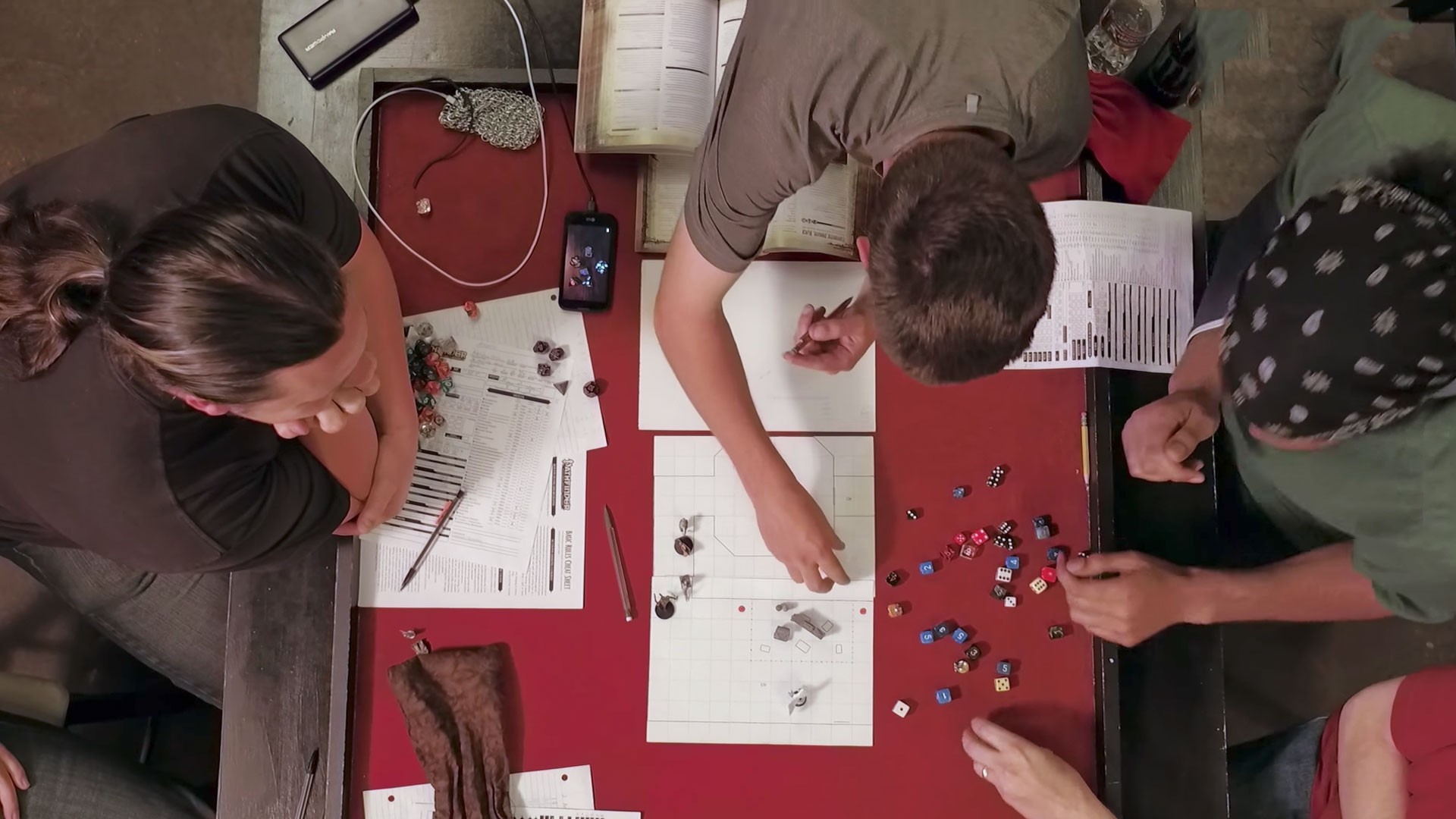All SimCity images courtesy EA
**At Play in the Carceral State is a week-long series investigating play in, around, and about prisons and prison culture. [Learn more here.
](https://waypoint.vice.com/enus/article/bjxk9m/at-play-in-the-carceral-state-a-letter-from-the-editor)**Postscript_ _is Cameron Kunzelman's weekly column about endings, apocalypses, deaths, bosses, and all sorts of other finalities._Video games often ask us to imagine radically different futures. What if a subterranean species of hivemind beings erupted from the earth to eliminate humans from existence? What if you had to be the parent of a small child during the zombie apocalypse? What if you had to navigate the world in a radically different way than you do now?Unlike comics, films, or literature, video games have the seemingly unique capability of allowing us to walk around in these places, interact with the people who inhabit them, and to put ourselves into the space where they are happening. Whether we are in the "god's eye view" of a builder game or the first-person camera of a shooter, we can see the shape and scale of the futures that video game developers build for us.These futures, though, are extrapolations of our conditions. The worlds that games present to us are always bound up in the material conditions of the world we live in right now. It is not surprising, then, that we've yet to see a game about prison abolition. Prisons mark every part of contemporary American life. They exist as a mode of social control in which certain populations are marked as more or less likely to commit crimes, a process with an explicit historical lineage that has, for example, led to black Americans being imprisoned at five times the rate of white Americans. They exist as a means of extracting labor for private gain in a wide system of penal labor that belies a legacy of American slavery. They even exist as a mode of biological control, as the recent case of a jail system that offers to trade jail time for contraception and sterilization demonstrates.Video games can imagine the social implications for a libertarian paradise under the ocean. They can imagine humans bonded to machines so well that we have a global social crisis centered on that bond. Why not the eradication of prisons? Why is that topic, amongst all other speculative ones, absent?This line of thinking is often criticized, and you might be thinking right now about how utterly baffling it is to even bother thinking about a world where the modern concept of the prison is abolished. You wouldn't be alone, and Angela Davis begins her book Are Prisons Obsolete? with this exact problem:While real-world crime analysts agree that incarceration is only one factor of many in how often crime occurs, there is still an overwhelming assumption that crime is decreased through increasing incarceration rates. Indeed, even though crime rates fell by 23% in the period between 2006 and 2014, the rate of incarceration only decreased only by 7%. Crime dropped significantly, but the amount of people who went to prison only decreased by a third of that number. That's what Angela Davis means when she says that prison is understood as "natural;" systemically, we have a collective belief that there must be a steady influx of people being imprisoned for crime to decrease at all.I've written a lot about how games can change the world. I'm not sure I think that happens at scale, meaning that I think that the connection between a designer, a game, and a player is much more intensive as a private experience than it is as a public phenomenon. But I also believe that games can change our minds, characterizations can confirm or deny our prejudices, and that the scenarios we depict onscreen have real-world implications for how we build our world. It is the participatory nature of games that drives this belief of mine. You are not only being told a story, but your continued participation in the game mechanics and narratives that are being put in front of you are what propel them along.I'll leave you with some numbers: In 2016, the United States's prison industry was worth around $5.3 billion dollars. This is most likely a conservative estimate that does not take into account allied industries like the control of prison phones. In contrast, the video game industry is worth $45.6 billion dollars. As an entertainment medium, video games are profoundly larger than the companies that manage prisons.The numbers tell two stories. The first one: Despite the difference in size and profits, video games remain alien to some. There are still people who don't play games. They are not yet ubiquitous within our society. So how ingrained must prisons be for us to take them for granted? How normal must we think prisons are for us to believe that depriving people of their freedom, perhaps for life, is justice?The second, and more hopeful story, is this: Many video games are about imagining, and a world without prisons is imaginable. Like all political projects, it is even attainable. And a strong stance from game creators that questions the natural and normalized prison is a step toward that better future.Follow Cameron Kunzelman on TwitterHave thoughts? Swing by Waypoints forums to share them!
Prisons mark every part of contemporary American life. They exist as a mode of social control in which certain populations are marked as more or less likely to commit crimes, a process with an explicit historical lineage that has, for example, led to black Americans being imprisoned at five times the rate of white Americans. They exist as a means of extracting labor for private gain in a wide system of penal labor that belies a legacy of American slavery. They even exist as a mode of biological control, as the recent case of a jail system that offers to trade jail time for contraception and sterilization demonstrates.Video games can imagine the social implications for a libertarian paradise under the ocean. They can imagine humans bonded to machines so well that we have a global social crisis centered on that bond. Why not the eradication of prisons? Why is that topic, amongst all other speculative ones, absent?This line of thinking is often criticized, and you might be thinking right now about how utterly baffling it is to even bother thinking about a world where the modern concept of the prison is abolished. You wouldn't be alone, and Angela Davis begins her book Are Prisons Obsolete? with this exact problem:While real-world crime analysts agree that incarceration is only one factor of many in how often crime occurs, there is still an overwhelming assumption that crime is decreased through increasing incarceration rates. Indeed, even though crime rates fell by 23% in the period between 2006 and 2014, the rate of incarceration only decreased only by 7%. Crime dropped significantly, but the amount of people who went to prison only decreased by a third of that number. That's what Angela Davis means when she says that prison is understood as "natural;" systemically, we have a collective belief that there must be a steady influx of people being imprisoned for crime to decrease at all.I've written a lot about how games can change the world. I'm not sure I think that happens at scale, meaning that I think that the connection between a designer, a game, and a player is much more intensive as a private experience than it is as a public phenomenon. But I also believe that games can change our minds, characterizations can confirm or deny our prejudices, and that the scenarios we depict onscreen have real-world implications for how we build our world. It is the participatory nature of games that drives this belief of mine. You are not only being told a story, but your continued participation in the game mechanics and narratives that are being put in front of you are what propel them along.I'll leave you with some numbers: In 2016, the United States's prison industry was worth around $5.3 billion dollars. This is most likely a conservative estimate that does not take into account allied industries like the control of prison phones. In contrast, the video game industry is worth $45.6 billion dollars. As an entertainment medium, video games are profoundly larger than the companies that manage prisons.The numbers tell two stories. The first one: Despite the difference in size and profits, video games remain alien to some. There are still people who don't play games. They are not yet ubiquitous within our society. So how ingrained must prisons be for us to take them for granted? How normal must we think prisons are for us to believe that depriving people of their freedom, perhaps for life, is justice?The second, and more hopeful story, is this: Many video games are about imagining, and a world without prisons is imaginable. Like all political projects, it is even attainable. And a strong stance from game creators that questions the natural and normalized prison is a step toward that better future.Follow Cameron Kunzelman on TwitterHave thoughts? Swing by Waypoints forums to share them!
Advertisement

Advertisement
This naturalization process—where we see prisons are simply an immutable fact of life—has seamlessly made its way into our depictions of the social world. The SimCity franchise has had various implementations of the prison system beginning with the introduction of the "Prison" building in SimCity 2000. In that game, and the ones following it, the large prison building is seen as the logical outcome of policing; if crime is too high, there is no alleviation other than increasing the number of people you can incarcerate. The game imagines the prison as a pressure valve for social problems.In most circles, prison abolition is simply unthinkable and implausible. Prison abolitionists are dismissed as utopians and idealists whose ideas are at best unrealistic and impracticable, and, at worst, mystifying and foolish. This is a measure of how difficult it is to envision a social order that does not rely on the threat of sequestering people in dreadful places designed to separate them from their communities and families. The prison is considered to be so 'natural' that it is extremely hard to imagine life without it.
Advertisement
Changing the way that we think about prisons means that we need to change the way that we think about the justifications for and uses of prisons. We need to think about their assumed place in the way that we pass laws, and we also need to understand how we affirm and solidify their place in society in the stories that we tell. Batman is understood to be a "moral" superhero because of his unwillingness to kill, but his very ability to exist as a superhero depends on places like Blackgate Penitentiary, a fictional super prison for the people who really need to be in prison (or so we are told).
Advertisement
